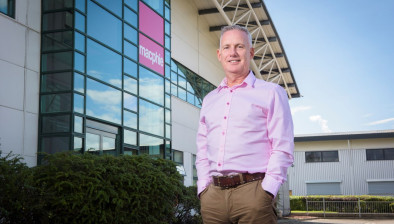UK savers missing out on millions in returns thanks to low interest accounts, Atom finds
UK savers are set to miss out on millions in returns after an epic £75.5 billion savings haul in lockdown, due to low savings account interest rates, according to a new report by Atom bank.

On average, Brits saved £1,974 each in lockdown, equating to £75.5bn across the UK, yet at least half of this is reported to be sitting in a savings account, likely offering minimal returns. Millennials saved the most out of all reported age groups – averaging at £2,200 each.
In total 73% of people have been using lockdown as an opportunity to save and just 8% have spent more than usual during lockdown, of those that have been saving, half (50%) said they’ve been putting it in an instant savings account so that they can access it easily when they need it.
However, with multiple rate cuts from the Bank of England leaving interest rates extremely low, savers are accumulating just £1.94 each in interest.
After the latest rate cut, the current average interest rate on savings accounts across the big six banks stands at just 0.01%.
The situation is only set to worsen for savers as 82% of people say they will continue their new found saving habits, despite the little reward. Negative interest rates are also on the horizon, which if implemented, could see bank rates fall further and even result in banks charging people for holding money.
The report comes as Atom launches a new savings account with an interest rate of 0.75% with no restrictions on withdrawals and no minimum deposit required at opening.
The report found that the majority of people (62%) view savings accounts as a place to safeguard money so they don’t overspend, whereas just 21% think they are a genuine investment opportunity, or a place to grow their money.
As a result, banks have been getting away with offering incredibly low rates and giving little back in return for their customer’s hard earned cash. What’s more, two in five (42%) could not confidently say what the interest rate is on their savings account, meaning many are left unaware of how their money is or (more likely) isn’t performing.
When it comes to interest rates offered by banks, 1 in 2 people (46%) said they would describe the state of interest rates as bad and that they couldn’t generate any additional money. Over 1 in 10 (13%) even said terrible, and that they stood to lose money.
Of those that have been saving more in lockdown, two thirds (62%) have saved money by staying at home and shopping less. 60% also saved due to restaurants and pubs being closed and a third (35%) saved from not commuting to and from work. One in three (30%) also saved money by making their own lunches.
Looking ahead, 82% say they are likely to continue saving, and as restrictions tighten across the UK we could even see this figure increase.
Despite the pandemic, people remain largely confident about both their short and long-term financial futures. Just under half (49%) report feeling confident about money in the short-term, with almost one in five (16%) saying they are ‘very’ confident.
When it comes to their long-term financial future, well over two fifths (43%) say they are confident, with well over a tenth (14%) ‘very’ confident.
Millennials are the most likely out of any age group to feel confident about both their short-term financial future (62%) and long-term financial future (55%).
Mark Mullen, CEO of Atom bank, commented: “Banks have been taking customers for granted for years. Lockdown has simply brought this into sharper focus. Brits have saved millions with little return for their efforts, while some of the UK’s biggest banks even pressed ahead with upping overdraft rates to an absurd 40% flat fee.
“For too long it’s been the norm to offer customers shockingly low interest rates. People are even stockpiling cash in their homes rather than in a bank account, which shows just how little they think they’ll gain by trusting the big six with their money. The borrower should get a great deal from the bank – whether to buy their home or sustain and grow their business – but so should the saver.”








